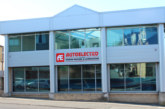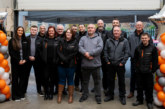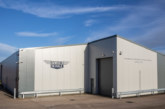How GSF Car Parts’ TechFest event unfolded
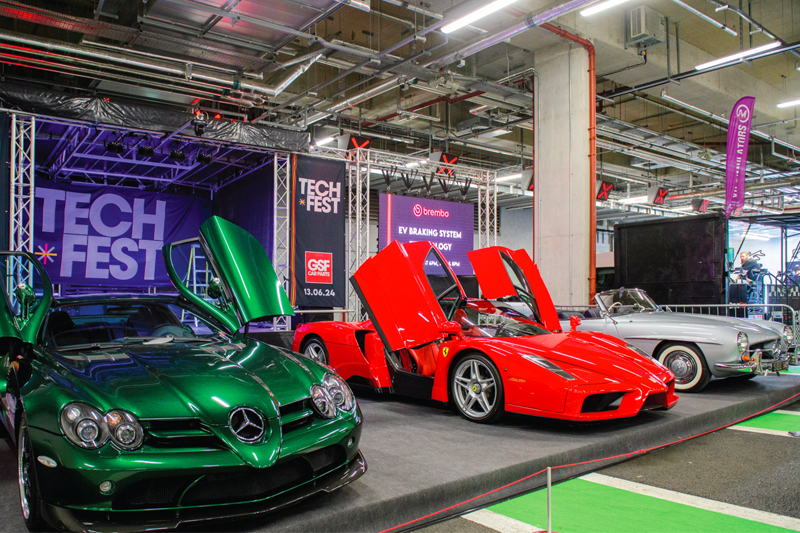
In part two of an interview conducted by PMM Editor, Kieran Nee, during GSF Car Parts’ TechFest event, members of the national motor factor’s senior leadership team – Sukhpal Ahluwalia, Steve Horne, and Martin Gray – react to how the inaugural occasion unfolded.
Q. It sounds like you’re taking a people-first approach – how does TechFest fit into that?
SA. “It’s about us connecting with the customer. It is about providing an added value solely for the customer, but more than anything, we can connect. And that is what TechFest is for.”
Q. So the three of you will be staying around for the evening?
“All night! All of us have been behind the scenes planning; we’ve literally immersed ourselves. And this is the first of many, this is a pilot. At the end of this, we will do a full recap and see what we need to do more of, or less, and you’ll see this replicated in the centre of the country, the North East, North West… So yeah, more of these.
“I think the general idea of TechFest is really to bring all our partners here – they’re all here, and they’ve got new technology, new software and training opportunities. They’re here to make our customers aware and enable them.
“Sometimes they (our staff) are not even aware; they work seven days-a-week, and nobody visits them. This is a good opportunity. There are wonderful cars, which everyone loves, there’s music, there’s gorgeous food and drink – I mean, it ticks all the boxes.”
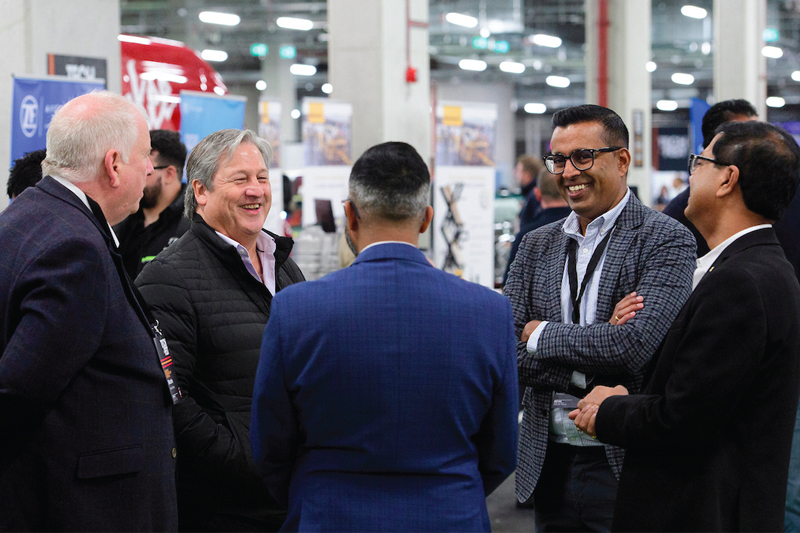
Q. Sukhpal, I understand some of the cars out there are your own cars – how many cars have you got here at TechFest today?
SA. “Probably about 14 or 15. So most of the classics are all mine here. I really specialise in mid-fifties to early seventies – that’s where I stop.”
Q. So behind what you do there is a passion for cars?
SA. “Absolutely, it’s in the blood, it’s my DNA and it’s the easiest thing for me. I have a huge business in property, AI and lots of other industries, but my heart is really connected here. This really gets me high and sometimes gets me low as well. It really evokes the extremities of your human emotions, you know.”
Q. What role does Servicesure have to play in driving growth?
SH. “It’s our garage network; we pick the garages to be part of the network. When we bought the business, it was about 550, but our intention is to grow that to 2,000. These selected garages will give us a national network that we can work with through product development and for directing work into those garages as well. But it will give any customer that trust, assurance that if they get a service and repair done there, they can get it fixed anywhere, any other Servicesure garage.”
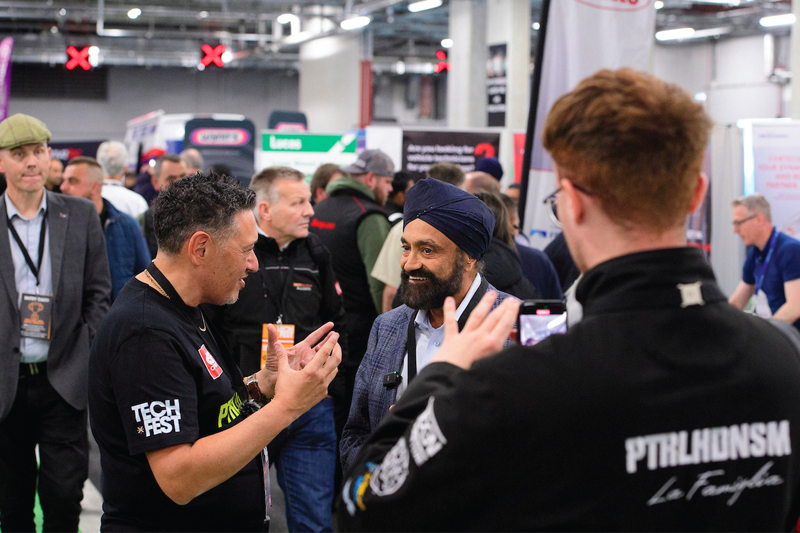
Q. And what benefits does that bring to the garages themselves?
SH. “So it gives them an identity, it gives them a credibility and the benefit from the marketing we do. They benefit from the training and the products we provide, but also by providing work to them as well.”
Q. Steve, what’s the answer to the skills gap?
SH. “I don’t think there’s one single answer; I think there are a number of different answers. I think we’ve got to attract different types of people to industry, starting at the colleges and working from there. Even pre-college to schools, we can start to educate. I think there are people, like our customer, Ambi Singh from Easy2Recruit, starting up businesses like that, recruiting people from abroad to come in who are skilled to take up some of those roles.
“We’ve looked at college graduates coming in who can’t get the job they want from university but actually are looking for something. So, I think there are lots of different answers to it – there’s not one – but I do think it’s the single biggest risk to the sector today.”
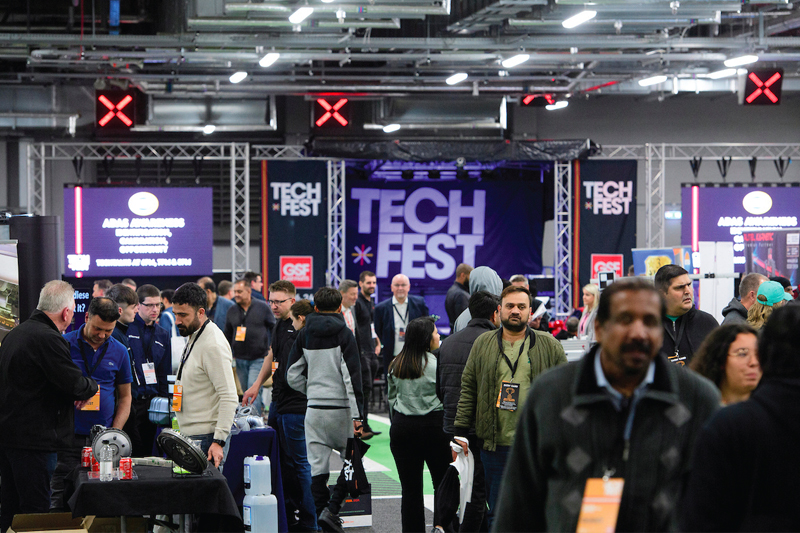
Q. Do you think we could do more in the UK to promote remanufactured parts?
SA. “Well, I think we already have quite an extensive range, whether it’s rotating, engines or brake calipers. We do tend to, in most cases, have an exchange program. If not, it’s complementary to a brand new one.
“But I think we need support from our suppliers that they provide the routes for us to send them back and, of course, incentives. I think it’s an important question close to my heart. I think that we could do more to recycle and I’m actually arranging meetings with certain recyclers at the moment.
“So, we’re going to try and go one step further: here is a new one, here is an exchange one and here is a used one on certain categories of parts.”
Q. With the cost of living, have you noticed more garages opting for aftermarket parts?
SA. “I think, on the whole, they just want to fit parts to people’s cars that are not going to let their customers down, and I think they rely on us to guide them. We have, very often, ‘good’, ‘better’, ‘best’ scenarios to offer to customers. Often, it’s the brands they trust. We give them the options and they make the decisions.
“I’m proud to be part of an industry that tries its best to enable the mobility of society at affordable pricing. I feel good about it because when people tell me, “I came to your shop, I bought four shock absorbers for £120, and the Mercedes dealer had quoted me £460. I nearly scrapped my car,” you feel that you’re doing something worthwhile.”
SH. “And in this economic environment, you tend to find more people go into the aftermarket out of the dealerships.”
Missed part one of this interview? Catch up here.



